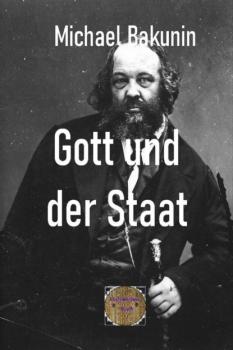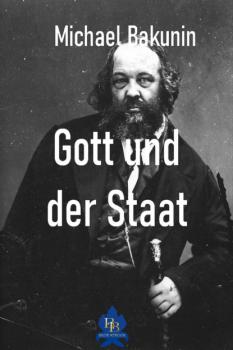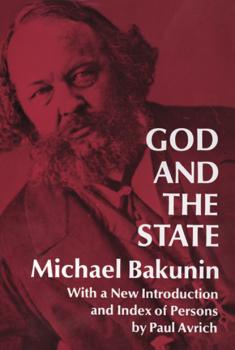ТОП просматриваемых книг сайта:
Michael Bakunin
Список книг автора Michael BakuninАннотация
Gott und der Staat von Michail Bakunin 1871 geschrieben, ist eines der bekanntesten Bücher Bakunins und der anarchistischen Bewegung im Allgemeinen. Bakunin beschreibt darin die Folgen der Religion auf die Gesellschaft und versucht, die Nicht-Existenz Gottes zu beweisen. Das Buch erschien 1882 auf Französisch und wurde als Pamphlet in Genf verteilt. Bald darauf wurde Gott und der Staat in viele Sprachen übersetzt, ganz im Gegensatz zu Staatlichkeit und Anarchie (1873), welches erst 50 Jahre später (1919) aus dem Russischen übersetzt wurde. Bakunin entwickelte die Idee des kollektivistischen Anarchismus. In der Internationalen Arbeiterassoziation war Bakunin die Hauptfigur der Antiautoritären und mit Generalratsmitglied Karl Marx im Konflikt, was zur Spaltung der Internationale führte und gleichzeitig zur Trennung der anarchistischen Bewegung von der kommunistischen Bewegung und der Sozialdemokratie.
Аннотация
Gott und der Staat von Michail Bakunin 1871 geschrieben, ist eines der bekanntesten Bücher Bakunins und der anarchistischen Bewegung im Allgemeinen. Bakunin beschreibt darin die Folgen der Religion auf die Gesellschaft und versucht, die Nicht-Existenz Gottes zu beweisen. Das Buch erschien 1882 auf Französisch und wurde als Pamphlet in Genf verteilt. Bald darauf wurde Gott und der Staat in viele Sprachen übersetzt, ganz im Gegensatz zu Staatlichkeit und Anarchie (1873), welches erst 50 Jahre später (1919) aus dem Russischen übersetzt wurde. Bakunin entwickelte die Idee des kollektivistischen Anarchismus. In der Internationalen Arbeiterassoziation war Bakunin die Hauptfigur der Antiautoritären und mit Generalratsmitglied Karl Marx im Konflikt, was zur Spaltung der Internationale führte und gleichzeitig zur Trennung der anarchistischen Bewegung von der kommunistischen Bewegung und der Sozialdemokratie.
Аннотация
Mikhail Bakunin (1814-1876) was a Russian revolutionary and theorist, and has often been called the father of anarchist theory. Bakunin studied philosophy, finding himself drawn to works by Fichte and Hegel, eventually converting himself entirely to Hegelianism. Bakunin gained criminal status after being deported from France – where he met George Sand, Pierre-Joseph Proudhon and Karl Marx – and later being arrested for his involvement in the Czech rebellion of 1848. His unfinished 1871 work, «God and the State», was intended to serve as the second part of a greater work called «The Knouto-Germanic Empire and the Social Revolution». It explores the psychology of the anarchist, rejects the notion of privilege or class, and wholly advocates radical revolution by rejecting all governing systems. Arguably Bakunin's most famous work, «God and the State» is an excellent read for anyone interested in political science or philosophy, particular the differences between anarchism and communism.
Аннотация
Among the 19th-century founders of modern philosophical anarchism, none is more important than Michael Bakunin (1814–76). Born into the Russian nobility, he renounced his hereditary rank in protest against Czarist oppression and fled to Western Europe. A colorful, charismatic personality, Bakunin quickly became central to the anarchism movement, and everyone involved either built upon or reacted to his ideas. Yet Bakunin, despite the power of his ideas, was primarily a man of action, and he wrote little. His only major work, God and the State, remained unfinished, although it is the torso of a giant.God and the State has been a basic anarchist and radical document for generations. It is one of the clearest statements of the anarchist philosophy of history: religion by its nature is an impoverishment, enslavement, and annihilation of humanity. It is the weapon of the state. It must be smashed, according to Bakunin, before the right of self-determination can be possible. As an introduction to anarchist thought, a manifesto of atheism, or as a summing-up of the thoughts of Bakunin, God and the State remains a mind-opening experience, even for those basically unsympathetic to its premise.




